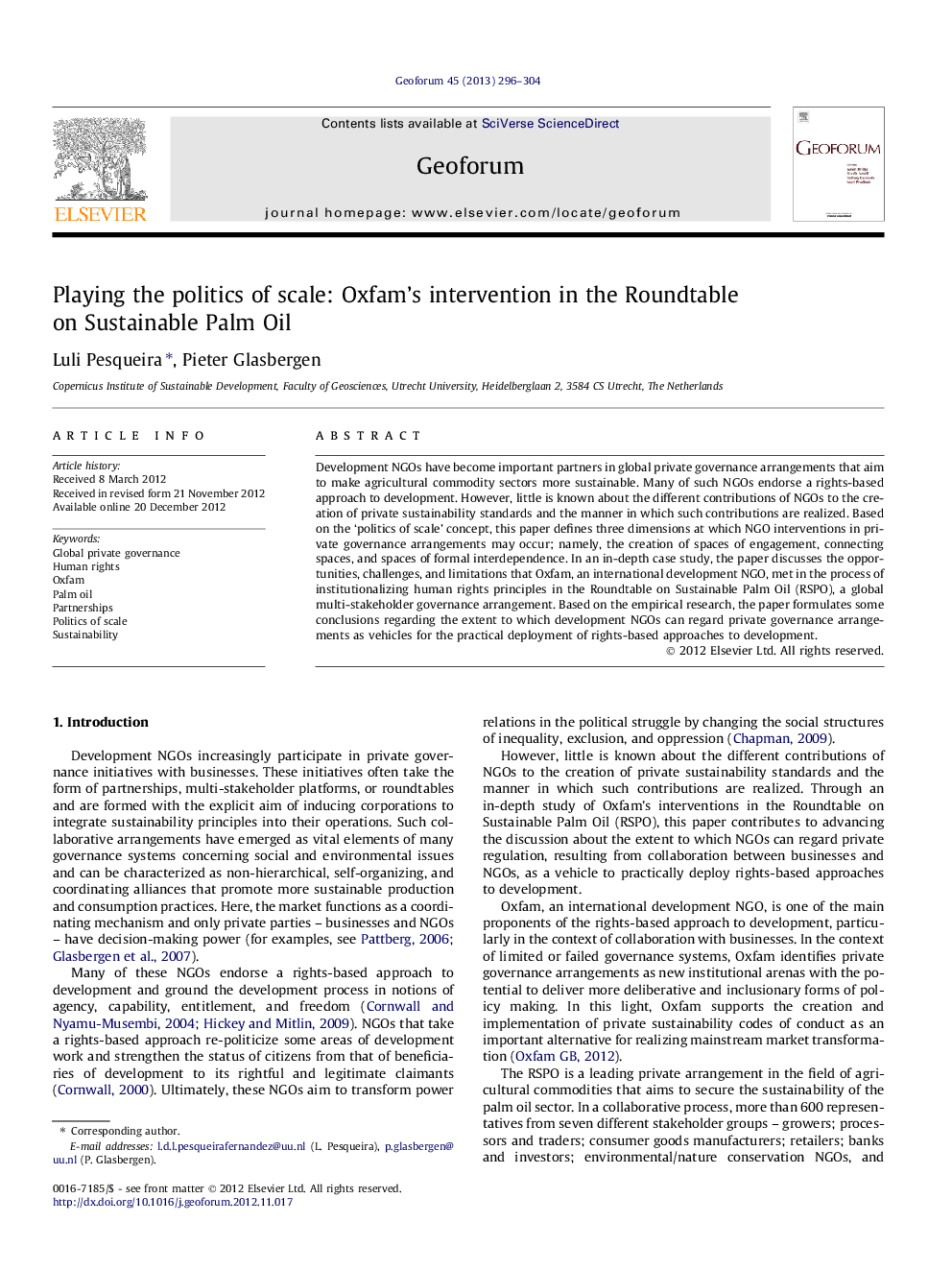| Article ID | Journal | Published Year | Pages | File Type |
|---|---|---|---|---|
| 5074172 | Geoforum | 2013 | 9 Pages |
Development NGOs have become important partners in global private governance arrangements that aim to make agricultural commodity sectors more sustainable. Many of such NGOs endorse a rights-based approach to development. However, little is known about the different contributions of NGOs to the creation of private sustainability standards and the manner in which such contributions are realized. Based on the 'politics of scale' concept, this paper defines three dimensions at which NGO interventions in private governance arrangements may occur; namely, the creation of spaces of engagement, connecting spaces, and spaces of formal interdependence. In an in-depth case study, the paper discusses the opportunities, challenges, and limitations that Oxfam, an international development NGO, met in the process of institutionalizing human rights principles in the Roundtable on Sustainable Palm Oil (RSPO), a global multi-stakeholder governance arrangement. Based on the empirical research, the paper formulates some conclusions regarding the extent to which development NGOs can regard private governance arrangements as vehicles for the practical deployment of rights-based approaches to development.
⺠Introducing rights-based approaches to private governance is a balancing act. ⺠NGOs regard voluntary regulation as an alternative to close governance gaps. ⺠Our politics of scale framework identifies three dimensions of NGO interventions. ⺠Oxfam's intervention in the RSPO enabled the legitimization of new social relations. ⺠The power balance and inclusiveness of the palm oil sector remain largely unchanged.
